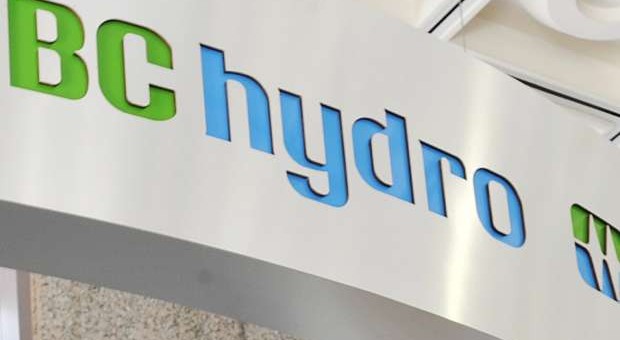On the clean energy economic opportunity for Indigenous communities in BC
Today in the legislature I rose during question period to ask the Minister of Energy, Mines and Petroleum Resources how he reconciles his government’s claim that it is committed to reconciliation with Indigenous peoples while at the same time introducing measures that will restrict their opportunities for clean energy economic development. I also asked him whether he was willing to instruct B.C. Hydro to declare force majeure on the existing Site C construction contracts, as opposed to the IPP contracts, to save billions upon billions of ratepayer dollars, and instead instruct B.C. Hydro to issue calls for power at market rate for any future power needs.
Below I reproduce the text of our exchange.
Video of Exchange
Question
A. Weaver: Many Indigenous communities in British Columbia anticipated being able to sell surplus electricity to B.C. Hydro. Despite this government’s professed commitment to reconciliation, the decision by B.C. Hydro to cancel its standing offer program has placed these communities in a very difficult position.
As I’m sure the minister is aware, reconciliation is a multifaceted process that involves building genuine, long-lasting economic partnerships with Indigenous communities. Otherwise many such communities will continue to struggle economically. More recently, with the proposed changes to the self-sufficiency clause in the Clean Energy Act, First Nations aspiring to become clean energy producers will be dealt yet another serious blow.
My question is to the Minister of Energy, Mines and Petroleum Resources. How can this government claim that it is committed to reconciliation with Indigenous peoples while at the same time introducing measures that will restrict their opportunities for economic development?
Answer
Hon. B. Ralston: I want to thank the member for Oak Bay–Gordon Head for his question. Let’s begin by remembering that the old government signed insider deals for power at five times the market price. That created a $16 billion obligation owed by British Columbians. That’s $16 billion in unnecessary costs.
We are committed to keeping B.C. Hydro rates low and building a low-carbon economy for people. Maintaining affordable electricity is critical to electrifying our economy and meeting our CleanBC goals. The standing offer program was not compatible with this.
Our government understands — and I acknowledge the import of the member’s question — that many Indigenous communities view small-scale private power as economic development opportunities. Indeed, when we suspended the standing offer program in February 2019, we exempted five projects in development that had significant First Nations involvement.
I agree with the member that it’s important to support Indigenous communities in clean energy economic development. Just last month we announced $13 million for four clean energy projects to help remote communities get off diesel.
Supplementary Question
A. Weaver: Over the last decade, numerous First Nations have banked heavily on clean energy projects as an economic development strategy. Many have entered into agreements with independent power producers to do the same. On Vancouver Island, for example, 13 of the 14 Nuu-chah-nulth First Nations are either current or perspective stakeholders in renewable energy products. The Tla-o-qui-aht Nation has poured over $50 million into clean energy projects and has plans to spend an additional $100 million.
Successful endeavours, such as the T’Sou-ke Nation’s solar farm in the Premier’s own riding, have helped get Indigenous nations off diesel, while others that have received financial backing from the government promise to do the same. For many Indigenous communities across British Columbia, the opportunity to sell excess electricity is a vital component of their future economic plans.
My question, once more, is to the Minister of Energy, Mines and Petroleum Resources. Will the minister instruct B.C. Hydro to declare force majeure on the existing Site C construction contracts, as opposed to the IPP contracts, to save billions upon billions of ratepayer dollars, and instead instruct B.C. Hydro to issue calls for power at market rate for any future power needs?
To remind the minister, market rate is not 20 cents a kilowatt hour. It’s not 15 cents a kilowatt hour. It is a few cents a kilowatt, as is demonstrated worldwide with the price of solar and wind being lower than the price of coal and natural gas combustion in most jurisdictions.
Answer
Hon. B. Ralston: Once again, I’d like to thank the member for Oak Bay–Gordon Head for his question. As a government, we are committed to working collaboratively with Indigenous communities on opportunities for economic development. We consulted widely, including engagement with Indigenous nations, on the Comprehensive Review of B.C. Hydro: Phase 2 Interim Report, which includes the proposal on the self-sufficiency requirement.
I think it’s important to note that the changes that we are proposing will not happen overnight. They will allow B.C. Hydro to consider out-of-province energy, as one option — one option among many — to providing clean and affordable energy, as part of their next 20-year plan. These changes support our climate plan, CleanBC, and they allow B.C. Hydro to continue purchasing power from First Nations-owned projects.
My ministry has a wide range of programs that support Indigenous communities to transition to clean energy and improve energy efficiency. For example, we’ve invested $5 million in the B.C. Indigenous clean energy initiative. This initiative supports community clean energy projects. I appreciate the member’s questions on this important topic. Our government will continue to work with Indigenous communities to identify clean energy opportunities.
Comments are closed.



